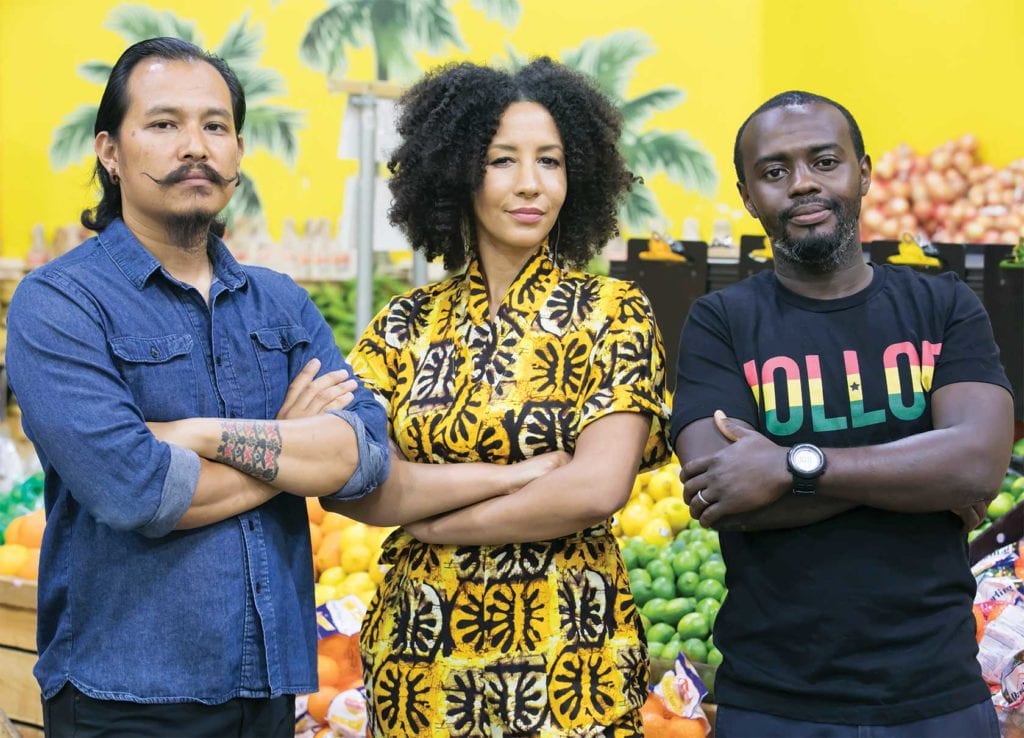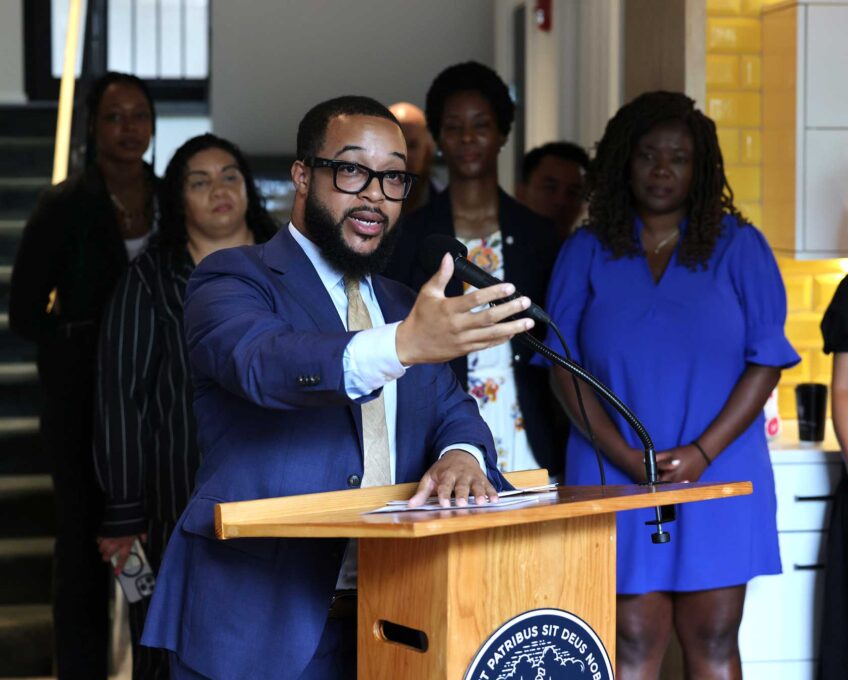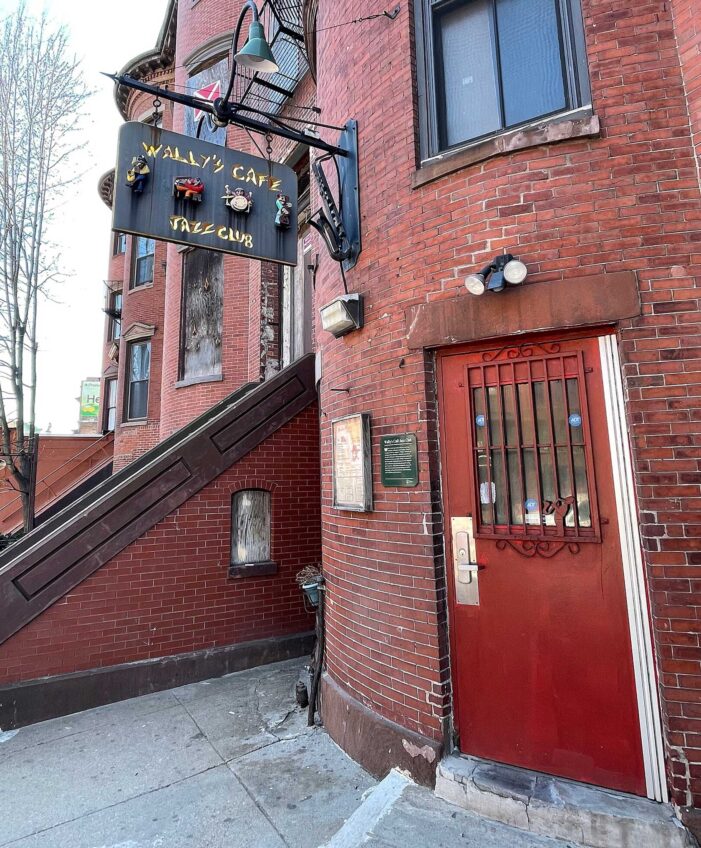
Biplaw Rai and Nyacko Perry are aiming to revolutionize the relationship between the Uphams Corner community and the restaurant industry with the founding of Comfort Kitchen, a comfort food restaurant offering Western-African and Asian cuisine.
The Dorchester couple partnered with Historic Boston Incorporated, a non-profit historic preservation organization, around May of 2019 to renovate and remodel a former comfort station, or rest stop, located along Columbia Road. The city of Boston built the station in 1912 to accommodate the needs of a surging city population and an expanding transportation system. While the property has remained vacant since 1977, Uphams Corner has become one of Boston’s busiest areas and one of the most diverse neighborhoods in the city.
Intending to reconnect the historically significant comfort station to the community, the city of Boston transferred ownership of the land to Historic Boston Incorporated in 2018.
Initially, Noah Hicks, community activist and founder of Bowdoin Bike School, partnered with Rai and HBI on plans to open Sip and Spoke Bike Kitchen, a bike repair shop and cafe, in the former comfort station. Renovations, which have to cost around $1.4 million, according to HBI, began in early 2019, but the bike café plans did not work out. Hicks transferred control of the project to Rai, whose extensive restaurant experience includes co-founding Roxbury’s Dudley Café, and Perry to ensure the development of a community-centric commercial establishment.
Hicks is confident the pair is capable of building such a space, he tells the Banner.
“I think it is most meaningful for this community to have a gathering space and a community cafe,” says Hicks. “That was what excited people about our idea. I love the fact that that’s still going to happen, and I think they are wonderful people to pull it off.”
A community focus
Like Hicks, Rai and Perry have made community development a central goal for the Comfort Kitchen project. Perry, who founded Yin Consulting, is using her background in organizational consulting to gather data about the community’s wants. She uses human-centered-design interviews, a process of collecting information by focusing mainly upon the perspectives of community members. She then takes the data and works to turn community desires into reality.
Perry and Rai plan to publish a synthesis of the community interviews later this month. For now, both say the data they’ve gathered has helped them to explore various pathways for the restaurant’s success.
“We want to be in touch with our surroundings,” Rai says, “because we find that community needs are here on the left, and then somebody comes in and builds something that is totally way out there [on the right]. And then, that person doesn’t do well because they are not meeting the community’s needs.”
To distinguish Comfort Kitchen from other restaurants in Uphams Corner and the Greater Boston area, Perry and Rai intend to focus on three elements.
First, the pair wants to provide meaningful and educational experiences during meals. For instance, Rai says the restaurant could infuse lessons about the farm-to-table process into meals to inform consumers about challenges in the restaurant industry.
Second, they strive to turn the restaurant into a social and comfortable community gathering place.
Lastly, in building a community at the restaurant, the couple wants to connect people from different backgrounds to generate cross-cultural understanding within the community.
As an example of an issue in need of a space for open-community dialogue, Perry cites gentrification.
“It is very important that we create a space where we can start to build that cross-cultural understanding and to share the stories and legacy and history of the space,” Perry says. “But also so new people who come in can start to acknowledge what’s going on around them and be present to [the fact that] there is a legacy here, there is a history here that needs to be acknowledged. And I think that’s a part of the cultural clash that is happening here.”
Immigrant roots
Though they highlight gentrification as an existing tension in the neighborhood, they also explain that Dorchester already has a diverse and trusting community. Rai, who immigrated from Nepal to the United States at the age of 18, talks about how neither Nepal nor America accepted him as a native son. Perry counters that Dorchester has accepted Rai into the community, and his struggle to find a home factored into their business model.
“Well, he has no home, so where is his place in this world?” asks Perry. “I feel like Dorchester is a place where he is able to build that and to have those relationships. Everybody deserves to feel at home and to feel a sense of comfort. So that’s part of what we are trying to build.”
To produce that sense of comfort at the new restaurant, the couple has invested in a core menu with Ghanaian and Nepali roots. They have partnered with Kwasi Kwaa, an immigrant from Ghana and the owner of Chop Bar, a Ghanaian street-food pop-up. Comfort Kitchen’s menu also will offer American versions of comfort food, such as breakfast sandwiches.
Mentorship for chefs
For roughly four months, the restaurant will let other local chefs put their food on the menu for half the week. The couple says chefs often struggle to transition into restaurant ownership because many lack experience in financing a restaurant and managing employees. So they hope to mentor other local chefs, especially those from marginalized backgrounds, through these pop-up nights.
Before Comfort Kitchen’s opening, expected in May of 2020, HBI has required that the couple reach several fundraising goals. They admit that it will be tough, but say they are committed to success and to the community.
“We want to have 10 solid employees that are paid well and very invested in the community for the long term,” Rai says. “That way, we can provide a high level of customer service and quality of food, and also be in the community for a long time. And about our commitment to Uphams Corner — we are not coming in there to open a restaurant for like five years. This is a long-term commitment, because it is our life-long journey. This is our life.”






